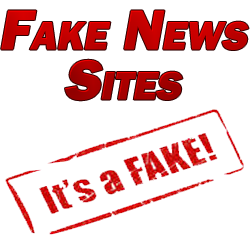If you’ve ever visited an acai berry themed website, you’ve likely come across one method of promotion which seems to be synonymous with a lot of these sites: fake news sites. The website is masked to look like a legitimate news site (with the implication that the site is unbiased and trustworthy) with the focal point being a video showing a supposedly local news segment in which the news anchor talks about the supposed health benefits of acai berry in this case.
They talk in a very objective manner about acai berry’s ability to help you lose weight extremely quickly and boast of its other health benefits. Logos of prominent news sites/channels like CNN are displayed around the page, as well. The website which you are on claims that their site has been mentioned or “as seen on” these impressive sites.
Fake News Sites
What they don’t tell you is that the only reason which their site was displayed on CNN was because they paid to have their banner displayed on CNN’s website as advertising.
These sites are built on deceptiveness and these supposedly legitimate looking sites are meant to establish trust and ethos. All in all, this is a black hat method of marketing, meaning that it’s generally frowned upon or construed as being dishonest or even illegal.
In fact, a recent FTC ruling has BANNED the use of fake news sites promoting acai berry related products. It’s interesting that they mention acai berry in particular in the ruling but this is a testament to how many of these sites are using this method. Enough people finally complained to get the FTC to take action, so it’s pretty serious. Even doing some keyword research ties fake news sites and phrases of the like almost exclusively to acai berry keywords.
I’m not sure how quickly we’ll see these fake news sites dry up and disappear as they look for another way to sell their superfood products, and I’m not sure how the FTC will be enforcing this; but it is something to consider if you plan on or are currently using this as part of your overall marketing strategy.
